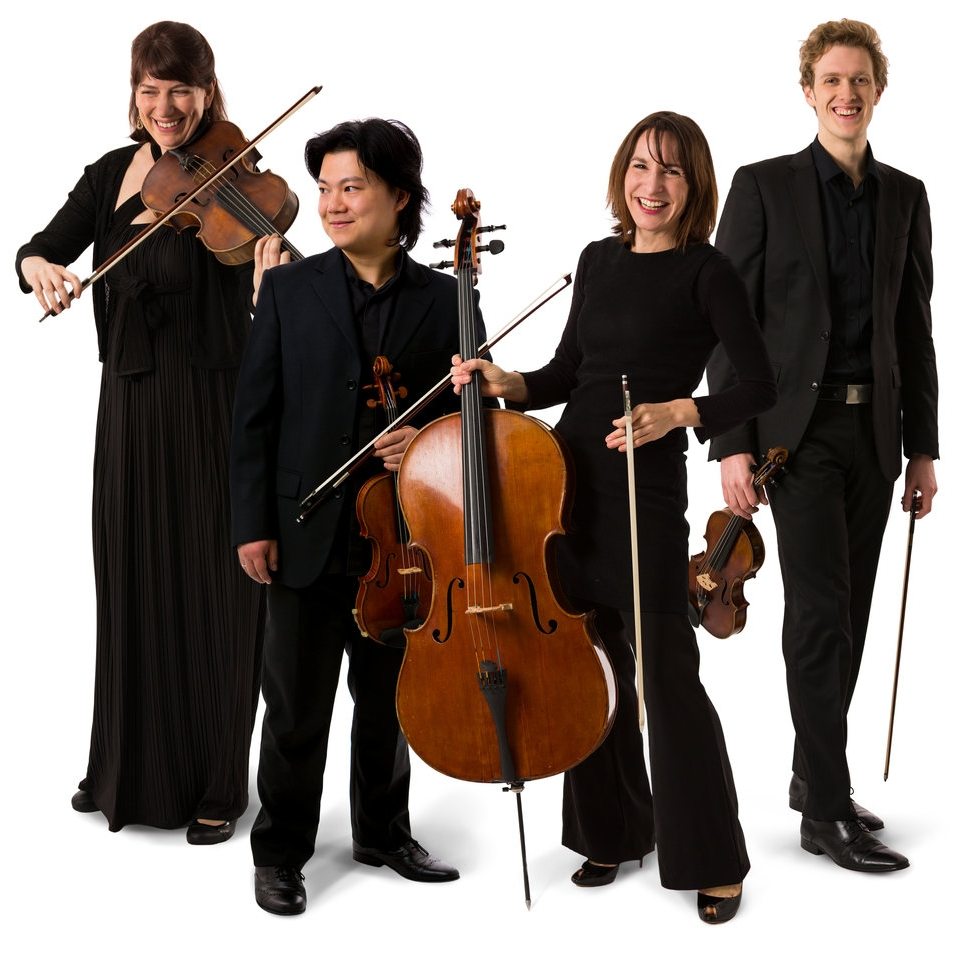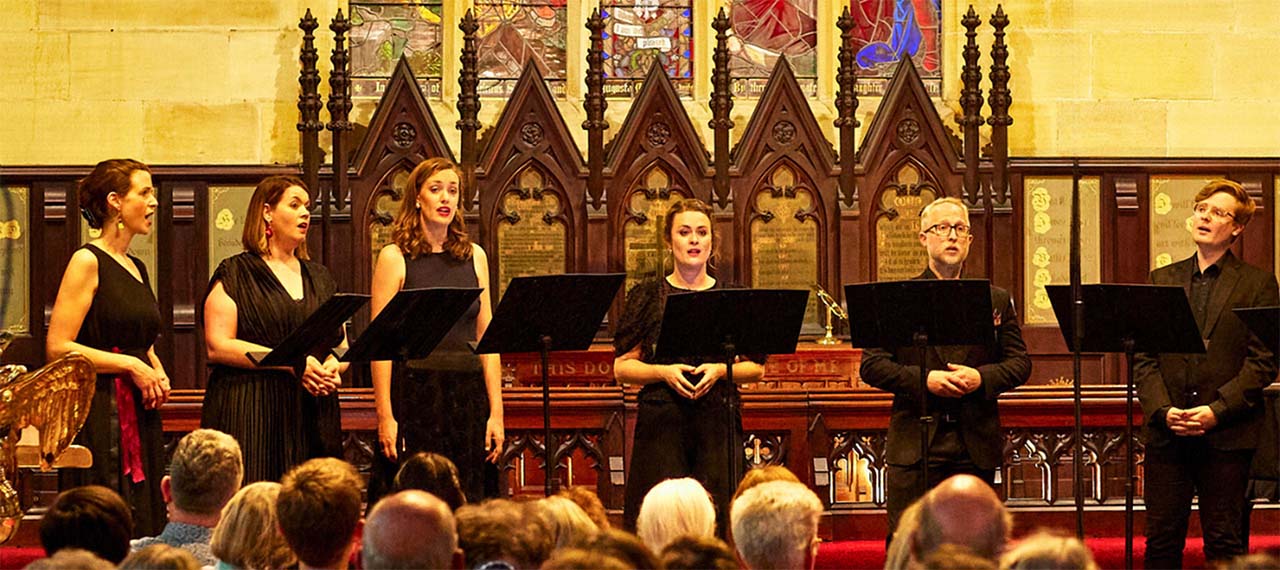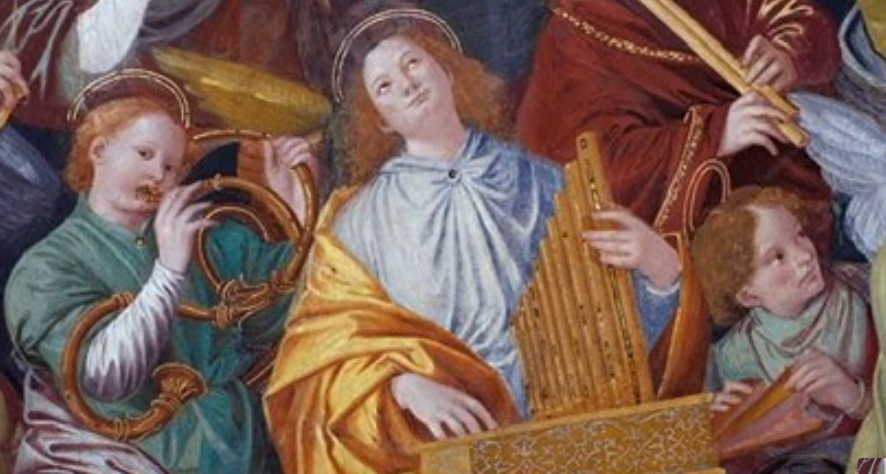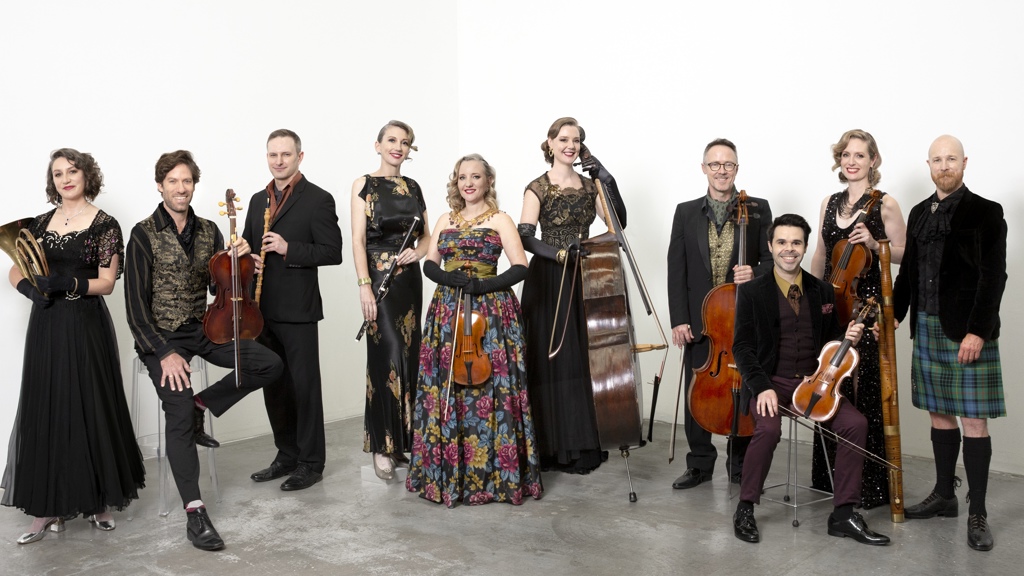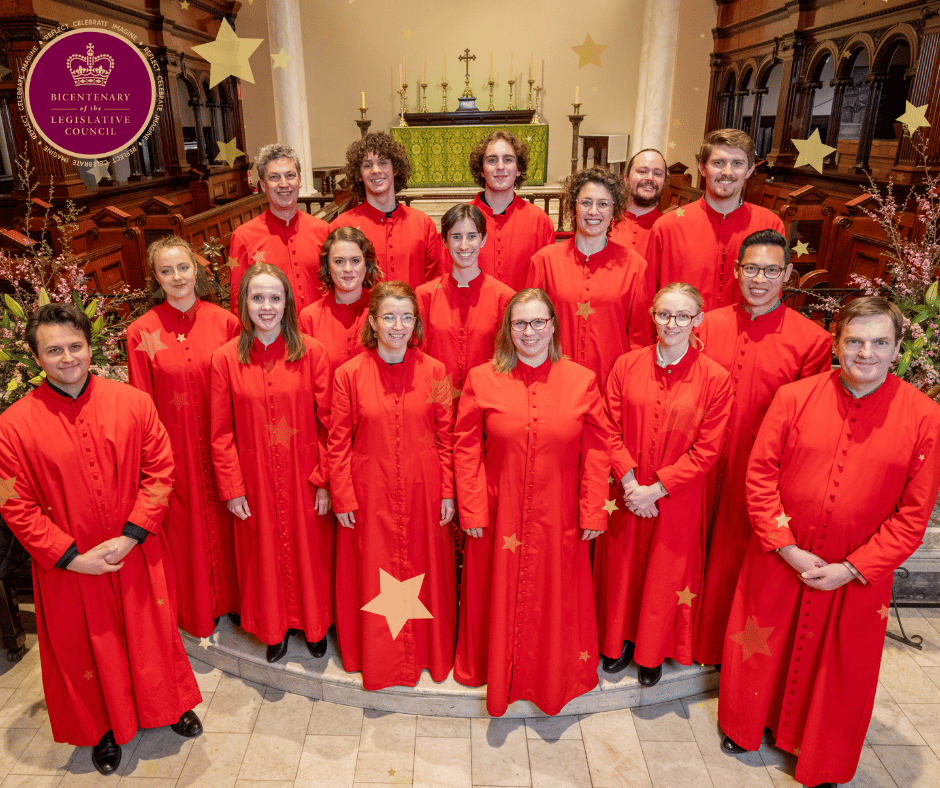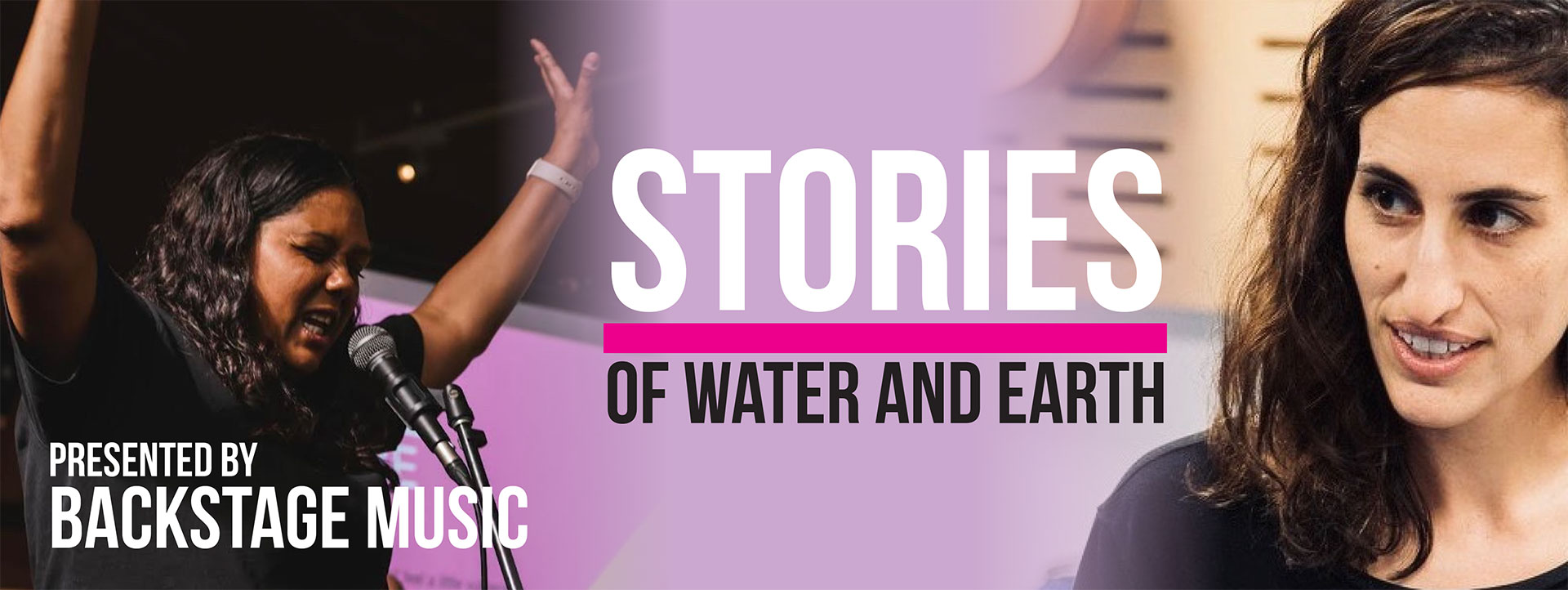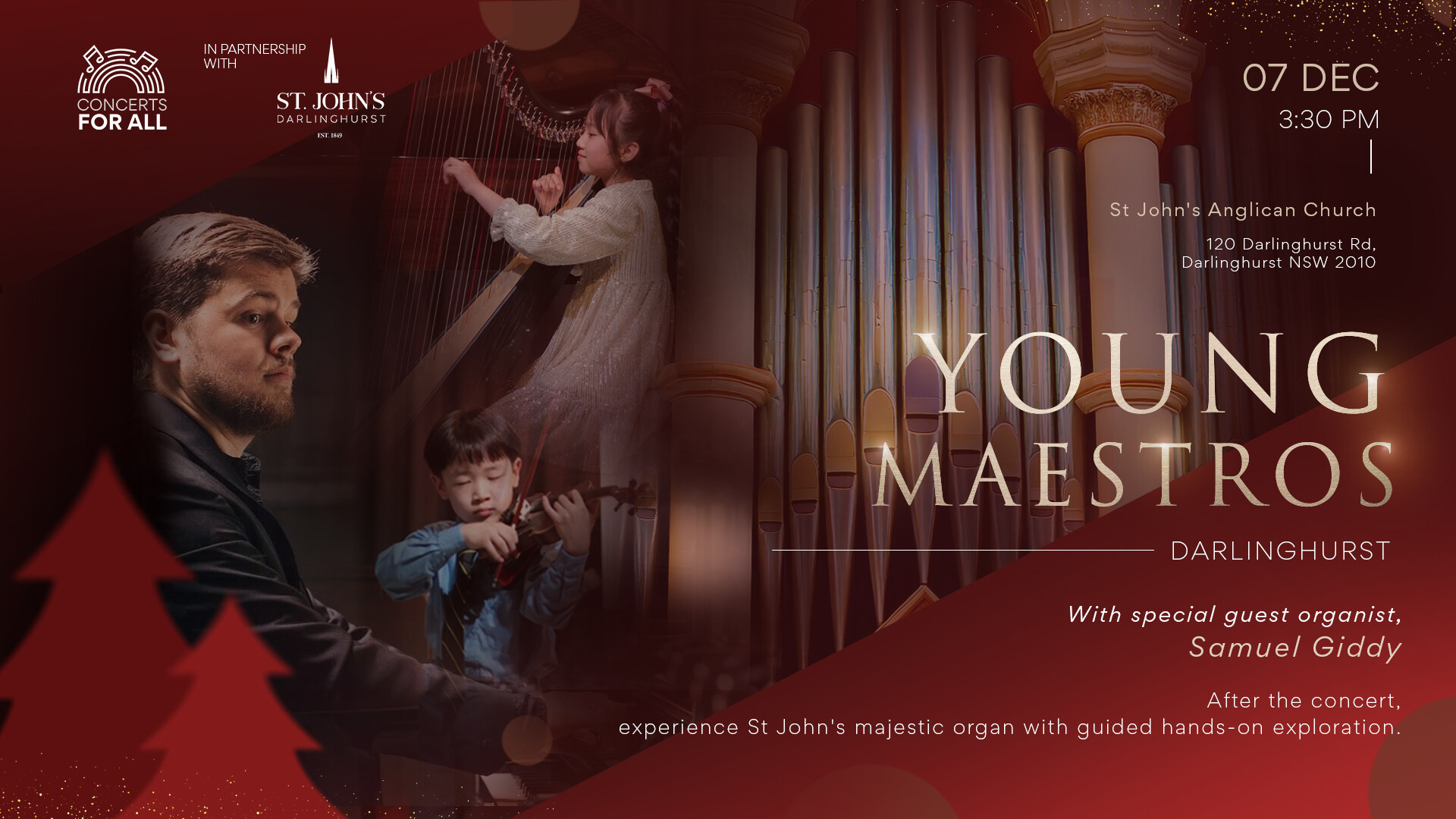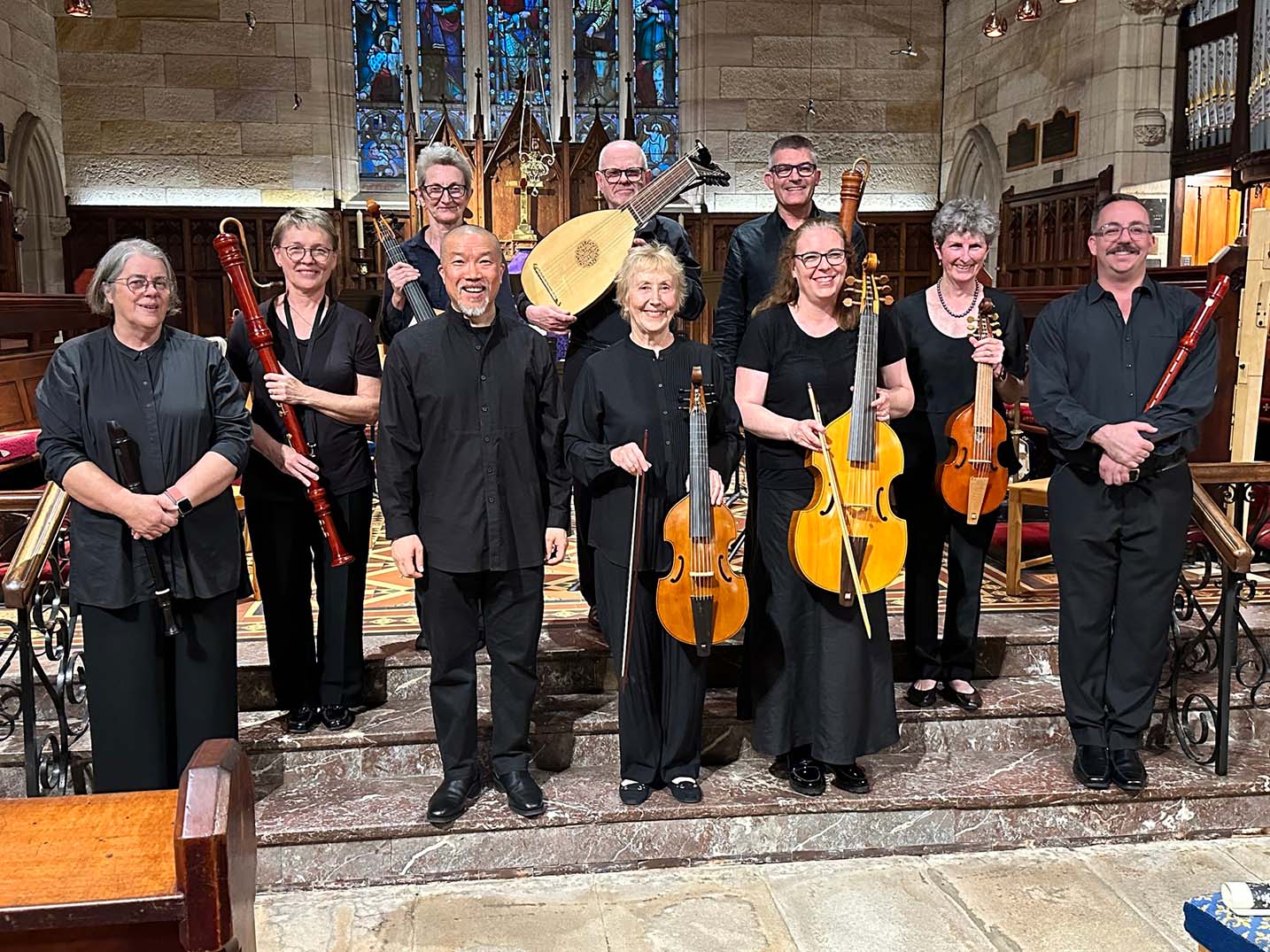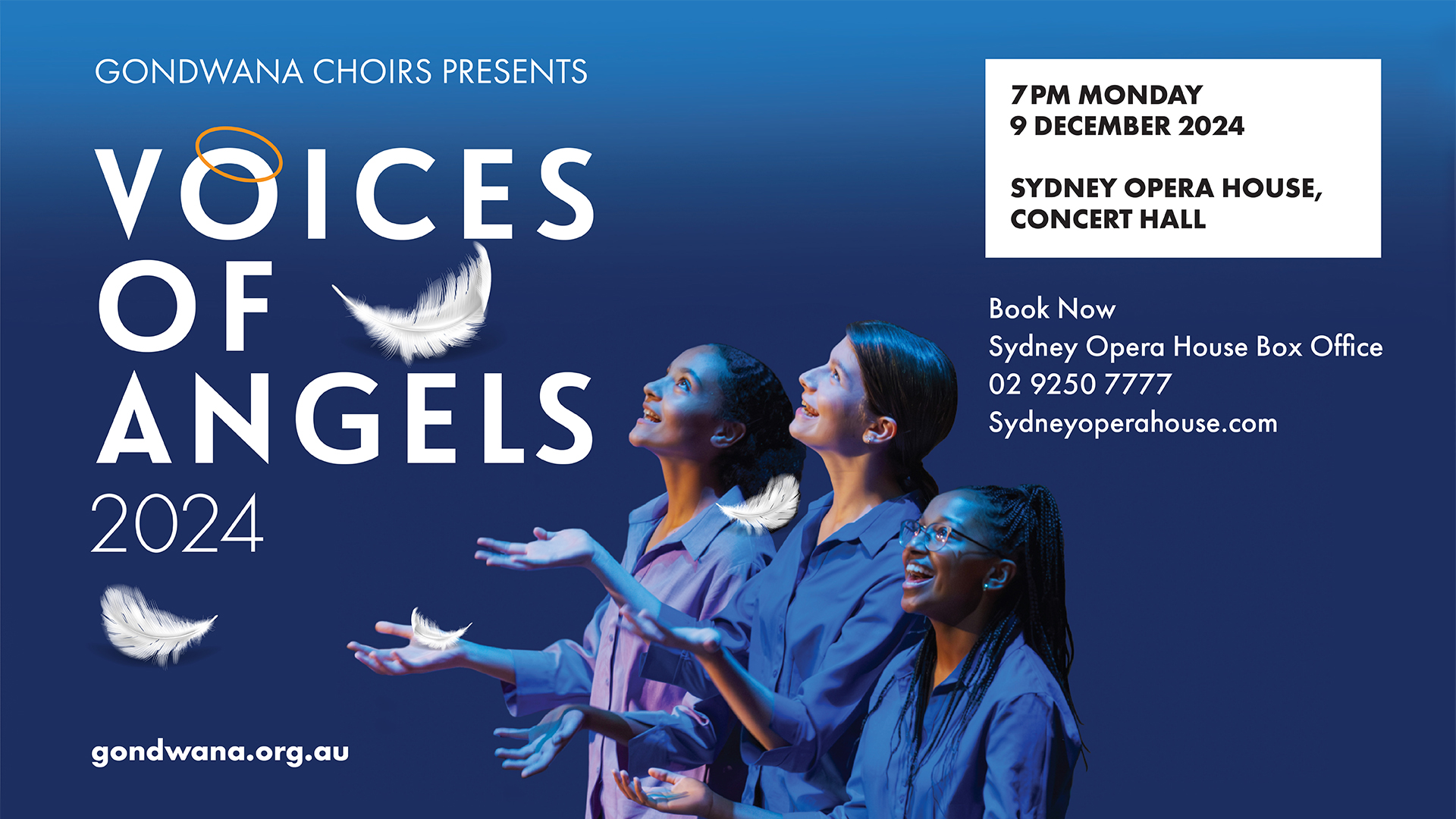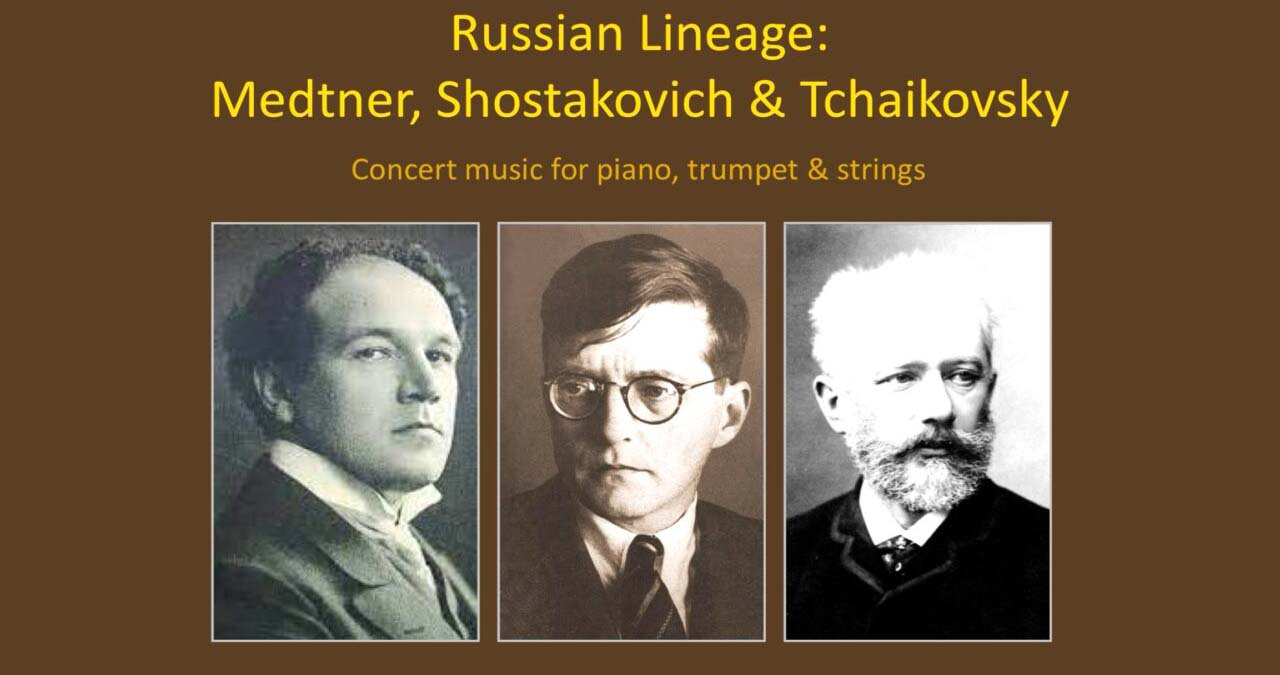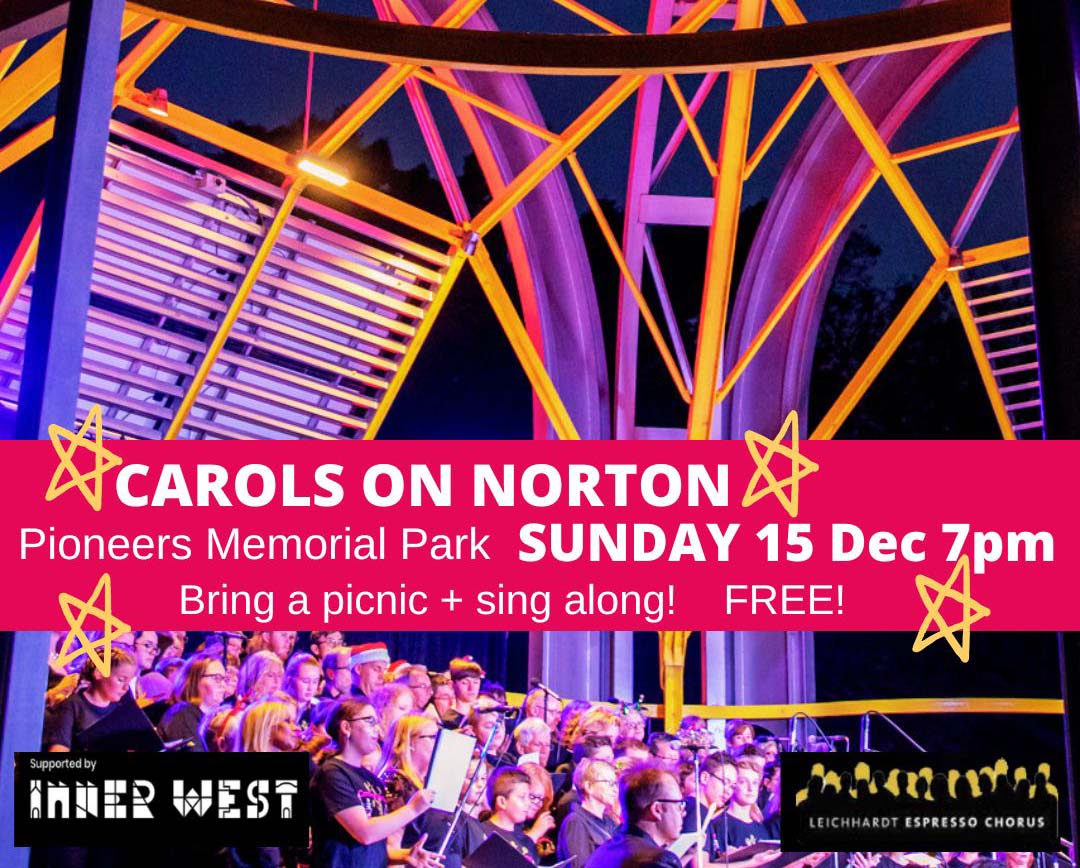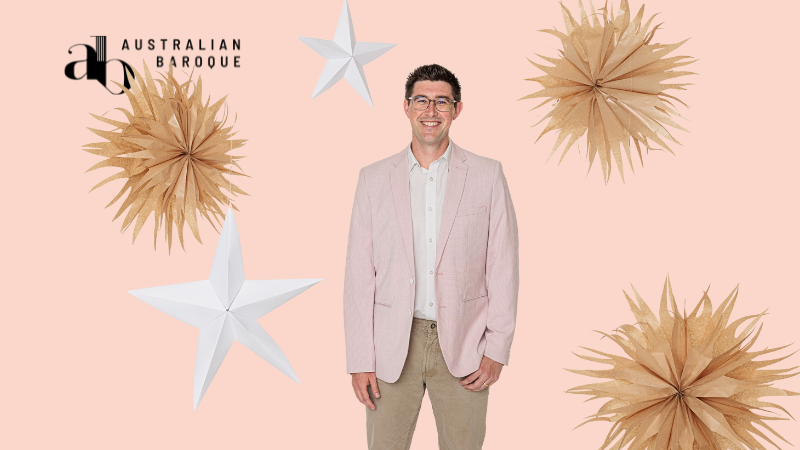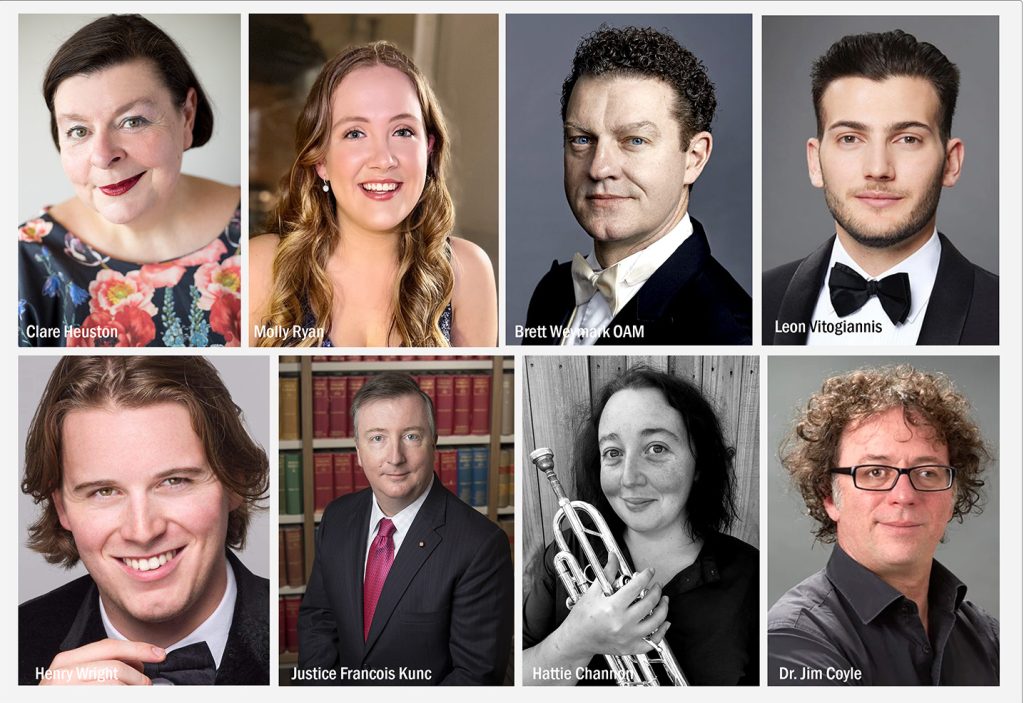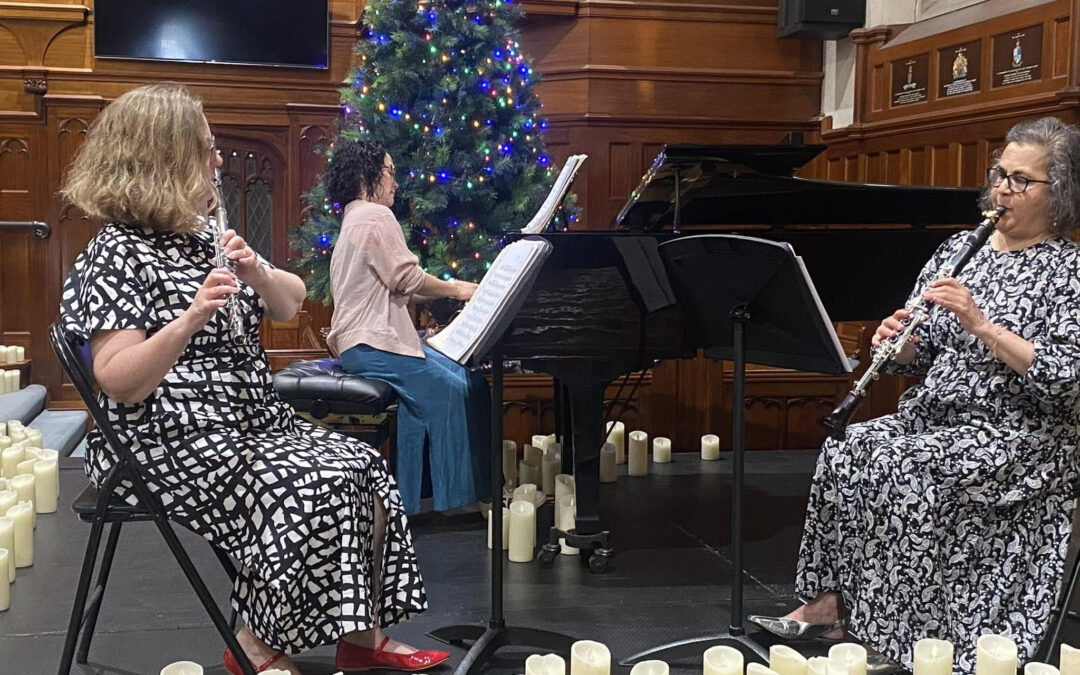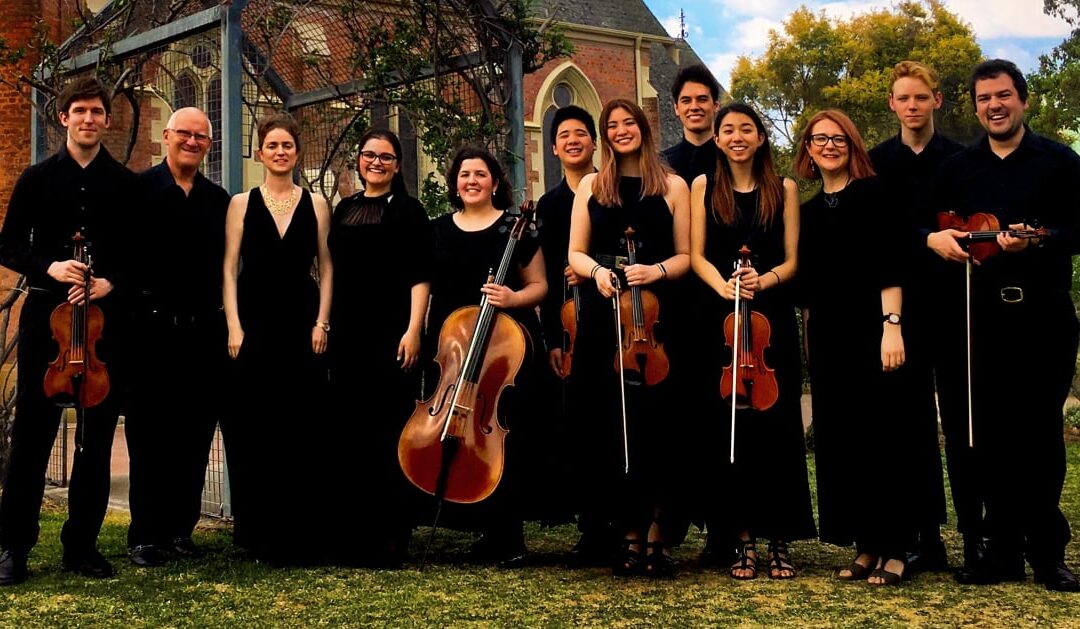Lunchtime concerts in the CBD are wonderful for city workers, being so close for so many people, so I wonder why there were not more people attending this concert. There were a few younger people but the audience of 80 or so were probably mostly retirees. There was nothing here that could be criticised as the programme of Schubert’s mighty D major quartet played by the incomparable Flinders Quartet would have pleased anybody remotely interested in classical music.
Interestingly an amateur group played 20 minutes before the official concert’s commencement for 10 minutes performing the third movement of Mendelssohn’s string quartet op 44 no 2. Introduced by Zoe Knighton the group played this pleasant and exquisite movement beautifully thus more than adequately showing that amateur music making is alive and well and that the Victorian Amateur Chamber Music Society is doing wonderful work. This is one important aspect of what chamber music is about, live music in the home making for active engagement in the arts. It’s so nice that aspects of the 18th and 19th centuries have not been entirely lost!
Zoe Knighton again introduced the programme proper at 1.00pm, with characteristic enthusiasm and a concise description of the piece. Her introduction reflected the programme notes which while copyrighted by the Flinders Quartet did not show who wrote them although there might have been a touch of the tone of Knighton’s style of introduction.
Schubert’s D major quartet has an orchestral texture and inspiration to the whole work such that one forgets that there are only four instruments and feels the breadth of inspiration that the great composers bring to the string quartet medium. The Flinders Quartet from the very beginning displayed this in their rendition of this great work. The opening chords coming virtually out of nowhere in the upper two strings and rapidly crescendoing with the almost immediate addition of the two lower strings gripped one from the start. This drama and energy was sustained throughout the entire movement and indeed the entire quartet.
After waiting for the latecomers (it is a lunchtime concert after all!) we were treated to the sublime Andante with Knighton’s singing melodies accompanied by punctuating two note rising intervals in the other strings. I was moved by the delicate textures here where the commentary of the accompaniment was not lost through underplaying, yet the melody somehow stood in beautiful relief indicating the very precise balance these musicians were able to give the movement. Redolent of Schubert’s songs where the piano part is a major contributor to the drama in the style of the accompaniment, the exquisite balancing of the various parts showed a wonderful control of the dynamic nature of leadership within a string quartet’s music. This movement abounds in beautiful ‘cello melodies with the viola acting as a sort of bass line. The melodic lines however, were passed from instrument to instrument and the viola got a few chances at showing off her wonderful tone.
Sustaining the energy of the first two movements, the last two movements were carried through with balance and again wonderful dynamic range. The counter-melodies of the third movement were perfectly balanced against the main melody. Indeed, one could ask which is the main melody as both melodies were just as important. Schubert as the master melodist created here a wonderful intertwining of melodies that is more than polyphony.
The massive last movement goes for over 11 minutes and yet one was never bored. How this quartet sustains it’s musical energy is a lesson for any musician. The tempo was nicely chosen so that speed did not get in the way of the music by going too fast, nor did this movement ever drag.
An encore by the Argentinian composer Carlos Guastavino as arranged for string quartet by Iain Grandage was played. This was one of Guastavino’s many songs. Hints of Argentinian Tango and Piazolla abounded and again many wonderful melodies with portamenti and obvious song like characteristics were performed with appropriate passion and elegance and yet never losing the folk like quality of the work. The luscious romanticism of this piece belies his living in the 20th century and the delightful sentimentality of this work probably derived from Argentinian folk song, was a perfect ending for this concert.
The Flinders Quartet displays a tight ensemble with exemplary intonation, capable of playing with shaping and inflection of phrasing that is both refined and dynamic. They move phrases on driving forward as well as holding back and delicately dwelling on those moments that need dwelling upon as a single unit. We are indeed fortunate to have resident in Australia a quartet of this very high calibre.
![]() Flinders Quartet | Quartet on Collins #2 | 27 June 2017 Collins St Baptist Church, Melbourne
Flinders Quartet | Quartet on Collins #2 | 27 June 2017 Collins St Baptist Church, Melbourne![]()

